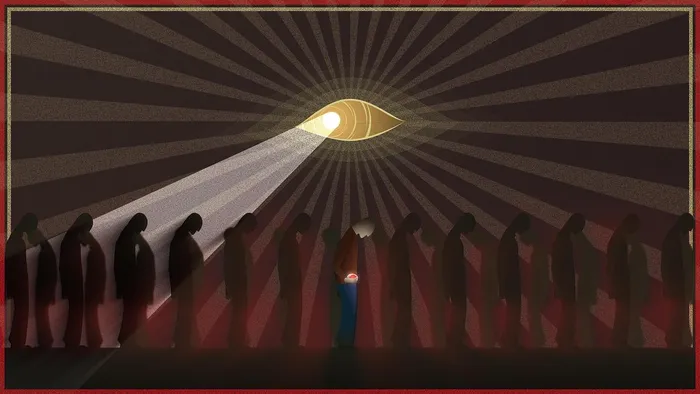
The problem with failing to hold the powerful to account or challenge their fantastical utterances is that, if left unchecked, power can be used to manipulate good people into doing evil.
Image: Oleg Gamulinskii / Pixabay
LET’S face it, growing up, there's something fuzzy and comforting that comes with having older, bigger cousins.
Older siblings are fine, but the problem there is that you live under one roof and they quickly learn how to wind you up. Older cousins, however, they came with an aura. Unlike siblings, they could ask you to do anything, and you’d gladly comply.
It was as if they had this enchantment, a magical, inexplicable power over you. A magical power that would get a group of us younger fans to chew on a piece of the elephant ear plant. For the uninformed, in this particular plant you find calcium oxalate, which are tiny, sharp crystals that sting like fury upon contact with the skin or mouth.
Ja nee … what the powerful get the plebs to do!
But for the record, our bigger cousin didn’t know better. He also chewed the leaf, he also got stung by the calcium oxalate. He also howled in pain … we howled together!
Innocent as that moment was, it reminds me of something far less harmless: the way power is wielded in the world today.
The older I get, the more I notice how power is being used – not to guide, uplift or enlighten, but to compel, to silence, to dominate. Increasingly, questioning those in charge gets you a version of the same response: “Because I say so.”
We see it in homes ruled by abusive partners, in religious institutions that demand obedience over reflection, and in politics, where authority often replaces truth. The dangerous allure of power has become an end in itself – not to live a fruitful, meaningful life, but to jostle, and clamour, and reach a place where one can finally say those words with impunity.
“Because I say so.”
But here’s the thing, I don’t know how many would agree, but this lust for power is pretty immature.
Here’s why I say that: Remember how the bully on the playground would have the say over how the games were played? They would terrorise the smaller children and then make the rules – as if power determines what is right, true and authentic.
An immature bully believes that because they declare something, make a statement or set a rule, that’s how things are. And because nobody dares oppose or contradict them, for fear of a pummeling, the bully – and here’s the concern – eventually starts to believe that everything they say is indeed correct, right, even true.
Now scale that up: to a home, a church, a government. The longer a bully goes unchecked, the more they begin to believe their own version of reality. And when people stop questioning, the lie becomes a kind of truth – not because it is right, but because it goes unopposed.
The hard truth is this: power cannot create truth. No matter how high your position or how wide your influence, you can’t turn falsehood into fact.
I say this even as someone who works at a newspaper – and honestly, I take only light interest in current affairs these days. It’s upsetting to watch public figures make eloquent but hollow declarations, knowing that many will hang on their every word, not because it makes sense, but because of who said it.
What happened to discernment?
If we fail to hold the powerful accountable, if we stop questioning their words and actions, we risk something far more dangerous. We risk good people being manipulated into doing harm.
We don’t have to look far for a glaring example. Consider Apartheid – a system where injustice was made legal, and citizens were encouraged, even expected, to obey laws that violated their own moral compass. Legality was used to override humanity.
People stopped doing right and willingly, obediently chose to do evil, because it was legal. Because someone in power told them to …
That’s the ultimate danger of unchecked power: not just what it does to the powerful, but what it does inside the rest of us.
Related Topics: